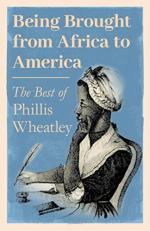|
This section contains 389 words (approx. 1 page at 400 words per page) |

|
Being Brought From Africa to America Summary & Study Guide Description
Being Brought From Africa to America Summary & Study Guide includes comprehensive information and analysis to help you understand the book. This study guide contains the following sections:
This detailed literature summary also contains Quotes and a Free Quiz on Being Brought From Africa to America by Phillis Wheatley.
The following version of this poem was used to create this guide: Wheatley, Phyllis. “On Being Brought From Africa to America.” Poetry Foundation, https://www.poetryfoundation.org/poems/45465/on-being-brought-from-africa-to-america.
Note that all parenthetical citations within the guide refer to the line number from which the quotation is taken.
Phillis, sometimes spelled Phyllis, Wheatley is famous as the first Black American author of a published book of poetry. She accomplished this feat as a woman in a time when few women were published, at the age of only nineteen, and while enslaved. Yet Wheatley's legacy remains contested and contentious to this day.
When Wheatley was a young child about seven or eight years old, she was kidnapped from her home in West Africa, sold into slavery, and brought to the United States. She was then sold to the Wheatley family of Boston. The Wheatleys, particularly the family's teenaged children, taught Phillis to read and write and recognized her exceptional literary ability. The family's son accompanied her to London in the hopes of finding a publisher for her book when she was a teenager. Many people did not believe any Black person, let alone a young woman, could write with such skill, so she had to defend her authorship in court. After the publication and enormous success of her book, the Wheatleys emancipated Phillis. She married John Peters, a free Black man, and had three children with him, but the family lived in poverty and she died at age thirty-one.
Wheatley's work holds an important place in literary history, as her publication represents an innovation in inclusion. Furthermore, her work is, by the estimation of most critics including Voltaire and George Washington, well worthy of study on its own merits as an expression of religious and political ideals. However, many literary critics, particularly Black American scholars, remain highly critical of Wheatley and her legacy, seeing in her story an apologia for the horrors of slavery that she endured.
This poem, in particular, is a site of that contention. Wheatley describes being brought from Africa to America, speaking of this passage as a "mercy" because it allowed her to be exposed to Christianity (1). The poem speaks of the relationship between Black people and Christianity, ending with a warning to white Christians to see Black people as spiritual equals.
Read more from the Study Guide
|
This section contains 389 words (approx. 1 page at 400 words per page) |

|



